HM Chief Inspector’s Annual Report 2017-18
HM Inspectorate of Prisons for Scotland
Laid before the Scottish Parliament by the Scottish Ministers
19th September 2018
SG/2018/146
ISBN 978 1 78781 124 9
PPDAS 447446
This document is also available in pdf format (867k)
Contents
Foreword by David Strang HM Chief Inspector of Prisons for Scotland
Foreword by Wendy Sinclair-Gieben HM Chief Inspector of Prisons for Scotland
Prison Inspections
Independent Prison Monitoring
IPM Advisory Group
Thematic Inspections
National Preventative Mechanism
Calls for Evidence
Encouraging Observations
Concerns
Strategic Challenges for the Criminal Justice System
Priorities for 2018/19
Staff
Finances
Freedom of Information
Submissions to the Scottish Parliament
Annex A: Annual Independent Prison Monitoring Summary Reports
Foreword
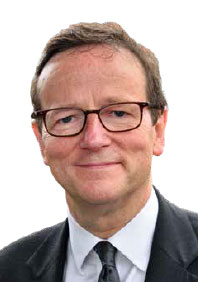
David Strang
HM Chief Inspector of Prisons for Scotland
(for the period covered by this report)
I am pleased to present my 2017-18 Annual Report of HM Inspectorate of Prisons for Scotland (HMIPS). It is customary for my Annual Reports to be presented to the Scottish Ministers who then lay it before the Scottish Parliament. I do so in my capacity as HM Chief Inspector of Prisons for Scotland (HMCIPS) for the period covered by this report.
On 31 March 2018, there were 7,327 people detained in Scotland’s prisons, 6,947 males and 380 females, with a further 284 released on Home Detention Curfew. This represents a small increase in the overall number of people in prison in Scotland over the last year. It is important to note that there continues to be a growing number of older prisoners, those serving longer sentences and those convicted of sexual offences. These factors are likely to continue to place pressure on the size of the prison population for some time to come.
On 31 March 2018, the number of prisoners on remand awaiting trial had dropped from 1,370 last year (18.7% of the prison population) to 1,140 (14.8% of the prison population), of which 1,072 were male (94%) and 68 (6%) were female.
I very much welcome the Scottish Government’s (SGs) recent announcement of their intention to extend the presumption against short prison sentences from the current three months to twelve months.
As HMCIPS, I am responsible for the inspection and monitoring of the conditions in prison and the treatment of prisoners. The general conditions in prisons have improved in recent years, as old prisons have been replaced or refurbished and new prisons have been built. The majority of prisons have modern facilities and residential accommodation of a suitable standard. However, two of the prisons we inspected this year are amongst the oldest prisons in Scotland; HMP Inverness and HMP Greenock. There are plans to replace both of these prisons, which I very much welcome based on what we found during the inspection.
Across the prisons we have inspected this year, prisoners have generally told me that they feel safe. It is a fundamental requirement of a well-run prison that people who live and work there should feel confident in its stability and order. We should never take for granted the good order that is maintained in Scotland’s prisons and that they are in generally stable and secure environments.
One of the key factors affecting the atmosphere in a prison is the quality of relationships between prisoners and those who work in prison. I continue to be impressed with the commitment of staff and their ability to care for and protect prisoners, a substantial proportion of whom are vulnerable. We know, too, that some may pose a serious danger to themselves or others. Throughout the year, I have seen many examples when staff have engaged constructively with prisoners, in order to support them through their sentence and in preparation for their return to the community.
My five years as HMCIPS came to an end in June 2018, so this is my final annual report. I would like to take this opportunity to thank all those who contributed to the work of HMIPS, particularly the expert inspection agencies who assisted us on our inspections. I also hold in high regard the volunteer Independent Prison Monitors (IPMs), who on a weekly basis monitor the conditions and treatment of people in every prison across Scotland. As a country, we have much to be proud of in how our prisons are run. I am convinced that the regular monitoring of prisons by IPMs and the professional inspecting of prisons by inspectors make a significant contribution to improving the treatment and conditions for people in prison.
By the time this report publishes, Wendy Sinclair-Gieben will have taken up post as HM Chief Inspector of Prisons for Scotland and I wish her well for the future.
"I continue to be impressed with the commitment of staff and their ability to care for and protect prisoners."
Foreword

Wendy Sinclair-Gieben
HM Chief Inspector of Prisons for Scotland
(at the time of publication of this report)
I was appointed as HM Chief Inspector of Prisons for Scotland on the 23 July 2018. Therefore this report covers a period when my predecessor, David Strang, was HM Chief Inspector. David’s tenure came to an end on the 15 June 2018.
David served as HM Chief Inspector for five years and I would like to take this opportunity to acknowledge the important contribution he made, particularly leading the introduction of prison monitoring. I know I speak for the whole Inspectorate in thanking him for his commitment and wishing him well for the future.
The annual report is a visual reminder of the importance of monitoring and inspection in bringing benefits of public scrutiny and assurance. In my tenure I hope to build on the excellent work of the previous Inspectors and continue to provide valuable insights into the conditions and treatment of people in custody.
Our Purpose
Introduction
The purpose of HMIPS is to inspect and monitor the conditions in prisons and the treatment of prisoners, and inspect court custody provision in Scotland, and to report publicly our findings. The inspectorate is independent of the Scottish Prison Service (SPS), the Scottish Court Service (SCS) and the SG, allowing us to report our findings impartially.
We inspected and monitored prisons, against a set of published Standards launched in March 2015. In May 2018, the Quality Indicators that support the Standards were reviewed. This revision was undertaken to ensure that they expressed as clearly as possible what would be monitored and inspected under each of the Standards.
In addition to inspecting and monitoring prisons we also inspect the court custody provision in Scotland. Here are the Standards for inspection, which are derived from the Standards for Inspecting and Monitoring Prisons in Scotland but are specifically for use in Scotland’s court buildings.
The information that we gather allows us to obtain as wide a perspective as possible of the prison and court custody facility being inspected. This enables us to ensure that our assessments are fair, balanced and accurate.
Respect For Human Rights
The lived experience of those in prison lies at the heart of our inspection and monitoring process. The revised quality indicators that were launched in May 2018 placed the human rights approach explicitly at the core of all monitoring and inspecting activities.
Inspections
Our programme of regular inspections is informed by an assessment of risk and requirement. We will continue to follow-up on our inspections with return visits by inspectors and ongoing monitoring by IPMs.
Monitoring
IPMs are volunteers from local communities who monitor treatment and conditions in Scotland’s prisons. Each prison is monitored at least once per week. IPMs make observations about treatment and conditions, and also look into issues prisoners raise. Any prisoner can ask to see an IPM by:
- Calling the IPM Freephone on 0800 056 7476. Calls are confidential and free.
- Submitting a paper request form via request boxes in prisons.
- Approaching IPMs while they are visiting prisons.
Overview of 2017-18
Prison Inspections
We conducted full inspections in four prisons in Scotland during this reporting year: HMPs Low Moss, Shotts, Inverness and Greenock. Each inspection was carried out by a multi-disciplinary team from the following scrutiny bodies in addition to HMIPS:
- Healthcare Improvement Scotland (HIS)
- Education Scotland (ES)
- The Care Inspectorate (CI)
- The Scottish Human Rights Commission (SHRC)
In addition, each inspection was supported by a number of professional prison managers.
We are grateful to each of them for their support throughout the year.
In addition to the full inspections, two return visits were completed in response to concerns identified during full inspections. The first return visit was to HMP Low Moss to check progress with healthcare provision, and the second to HMP Shotts to assess the impact of a change in education provider.
Following HMIPS recommendations from an inspection of HMP & YOI Cornton Vale which led to the early closure of areas of the prison, and the transfer of 100 women to HMP & YOI Polmont, we undertook a series of inspections in HMP & YOI Polmont. The final report was published in May 2017. Overall, we assessed that the arrival of the women at HMP & YOI Polmont did not have a detrimental impact on the regime and opportunities for the young men, and the women were able to benefit from accommodation which was more modern.
Inspection Activity 2017-18
Links to inspection reports:
HMP Low Moss 29 May – 9 June 2017
HMP Shotts 21 August – 1 September 2017
HMP Inverness 13-24 November 2017
HMP Low Moss Return Visit – 24-26 January 2018
HMP Greenock 19 February – 2 March 2018
HMP Shotts Return Visit – 29 March 2018
In 2017-18 HMIPS Completed four full inspections and two return visits
Summary of Inspections Ratings
|
Standard |
HMP Low Moss |
HMP Shotts |
HMP Inverness |
HMP Greenock |
|---|---|---|---|---|
|
1 Lawful and transparent custody |
 |
 |
 |
 |
|
2 Decency |
 |
 |
 |
 |
|
3 Personal safety |
 |
 |
 |
 |
|
4 Health and wellbeing |
 |
 |
 |
 |
|
5 Effective, courteous and humane exercise of authority |
 |
 |
 |
 |
|
6 Respect, autonomy and protection against mistreatment |
 |
 |
 |
 |
|
7 Purposeful activity |
 |
 |
 |
 |
|
8 Transitions from custody to life in |
 |
 |
 |
 |
|
9 Equality, dignity and respect |
 |
 |
 |
 |
|
10 Organisational effectiveness |
 |
 |
 |
 |
Ratings Key
| Rating | Definition | |
|---|---|---|
 |
Good performance | Indicates good performance which may constitute a practice worthy of sharing. |
 |
Satisfactory performance | Indicates overall satisfactory performance. |
 |
Generally acceptable | Indicates generally acceptable performance though some performance improvements are required. |
 |
Poor performance | Indicates poor performance and will be accompanied by a statement of what requires to be addressed. |
 |
Unacceptable performance | Indicates unacceptable performance that requires immediate attention. |
 |
Not applicable | Quality indicator is not applicable. |
"We have been encouraged to see improvements being implemented as establishments respond positively to the observations and findings of IPMs."
Independent Prison Monitoring
2017-18 was the second full year of the operation of Independent Prison Monitoring, the responsibility of HMIPS since August 2015. Over 120 IPMs ensured that every prison was visited every week to monitor the conditions and treatment in prison, through observing practice, and responding to prisoners’ requests for assistance. During this time, IPMs volunteered over 5,000 hours of their time, monitoring Scotland’s prisons on 945 occasions and dealing with more than 900 requests from prisoners. IPMs’ findings were communicated regularly to prison Governors and Directors throughout the year. Monitoring reports relating to each prison are contained in Annex A of this report.
We have been encouraged to see improvements being implemented as establishments respond positively to the observations and findings of IPMs. Some of these changes have related to the circumstances of individual prisoners, while others have led to improvements in processes affecting the wider population in the prison.
There are real benefits from having both inspecting and monitoring under the remit of HMIPS. This allows information sharing, joint working and a coordinated approach, without in any way compromising the independence of the IPMs. We are grateful, too, to the IPM Advisory Group for their support in reviewing the operation of independent monitoring; a summary of the activity of the Advisory Group is provided later in the report.
HMIPS was delighted to receive Investing in Volunteers accreditation this year, in relation to the IPM role.
In 2016-17 IPMs Completed 945 Monitoring Visits
Summary Of Performance
|
Region |
Prison |
Average contracted places1 |
Population |
IPM Visits |
Prisoner Requests |
IPM Hours |
|---|---|---|---|---|---|---|
|
1 |
HMP Glenochil |
670 |
653 |
65 |
71 |
389 |
|
HMP & YOI Grampian |
474 |
452 |
57 |
86 |
386 |
|
|
HMP Inverness |
98 |
88 |
59 |
31 |
206 |
|
|
HMP Open Estate |
285 |
194 |
57 |
24 |
200 |
|
|
HMP Perth |
631 |
625 |
58 |
51 |
352 |
|
|
2 |
HMP Addiewell |
700 |
698 |
68 |
119 |
500 |
|
HMP & YOI Cornton Vale |
111 |
80 |
52 |
36 |
310 |
|
|
HMP Edinburgh |
870 |
825 |
89 |
85 |
408 |
|
|
HMP & YOI Polmont |
607 |
440 |
66 |
18 |
295 |
|
|
HMP Shotts |
538 |
530 |
81 |
74 |
374 |
|
|
3 |
HMP Barlinnie |
1,021 |
1,077 |
69 |
138 |
476 |
|
HMP Dumfries |
173 |
162 |
52 |
34 |
350 |
|
|
HMP Greenock |
263 |
234 |
56 |
44 |
322 |
|
|
HMP Kilmarnock |
500 |
501 |
58 |
41 |
294 |
|
|
HMP Low Moss |
784 |
768 |
58 |
48 |
317 |
|
|
Total |
7,725 |
7,327 |
945 |
900 |
5,177 |
1Data from SPS Population and Accommodation Report
2Data from SPS Population and Accommodation Report
Independent Prison Monitoring Advisory Group
The IPM Advisory Group provides oversight of the effectiveness of Independent Prison Monitoring and the training and guidance available to IPMs, and makes recommendations for improvement. It is chaired by Dr Alan Mitchell, a member of the SHRC. Other members are:
- David Croft, formerly Deputy Director of Prisons for the SPS and formerly the Governor of HMP Edinburgh
- Fiona Govan, IPM at HMP Greenock
- Dan Gunn, formerly Director of Operations for the SPS
- Anne Hawkins, formerly the Director of Glasgow City Community Health Partnership
- Hugh McGloin, IPM at HMP Low Moss
- Howard McKenzie, IPM at HMP & YOI Polmont
- Jim McManus, UK representative on the European Committee for the Prevention of Torture
- Muriel Mowat, IPM at HMP & YOI Polmont
- Catherine Mullen, IPM at HMP & YOI Grampian
- Richard Sparks, Professor of Criminology at the University of Edinburgh
- Marilyn Stenhouse, IPM at HMP & YOI Cornton Vale
- Pete White, founder and Chief Executive of Positive Prisons? Positive Futures
In addition, our HMCIPS is a member of the Advisory Group, along with the four Prison Monitoring Coordinators. A representative from the SGs Justice Directorate is also invited to each meeting as an observer, and all IPMs are also invited to attend to observe the meeting.
The IPM Advisory Group met five times during 2017-18, including four business meetings and an annual review. During this year, the Advisory Group focussed on exploring monitoring methodology and impact around key issues including:
- Prisoner healthcare
- Deaths in custody and suicide prevention
- Treatment and conditions of prisoners held in isolation in Separation and Reintegration Units
- Ensuring monitoring is preventive and sufficiently proactive
Thematic Inspections
Who Cares? The lived experience of older prisoners in Scotland’s prisons
In addition to carrying out our overall responsibility for the inspection and monitoring of prisons in Scotland, we carried out a thematic study on the experience of older prisoners in Scottish prisons, and published a report in July 2017 entitled Who cares? The lived experience of older prisoners in Scotland’s prisons. This report highlighted the growing challenges of meeting the needs of an increasingly old and infirm prison population – social care, healthcare, activities, family contact, mobility, and personal fears. It also highlighted the need for a clear strategy for older prisoners. The report was well received and provoked considerable interest and debate, and we await formal responses from the SPS and the SG.
National Preventive Mechanism (NPM)
The United Kingdom is a signatory to the United Nations Optional Protocol to the Convention Against Torture and other Cruel, Inhuman or Degrading Treatment or Punishment (OPCAT). We are one of 21 bodies which comprise the UK’s NPM, which has a duty regularly to monitor the treatment of detainees and the conditions in which they are held. This year we attended quarterly NPM business meetings, contributed to thematic work, and our HM Chief Inspector chaired the NPM Steering Group and the Scottish sub-group.
Calls for Evidence
During the period of this report we gave oral and written evidence on prisoner voting to the Equality and Human Rights Committee, and on the use of remand to the Justice Committee.
In 2017-18 IPMs Responded to 900 Prisoner Requests
"We saw good examples of staff supporting prisoners to maintain good family relationships, particularly with their children."
What We Found
Encouraging Observations
Relationships
Positive relationships are key to the successful running of a prison. It was encouraging for inspectors and IPMs to consistently see positive relationships and interactions between staff and prisoners, relationships they see as being built on mutual respect.
It is recognised that maintaining strong parent/child relationships during periods of imprisonment is beneficial for both child and parent, and we saw good examples of staff supporting prisoners to maintain good family relationships, particularly with their children. IPMs reported impressive and varied work being undertaken within prisons, to ensure that these key relationships can be maintained and developed. Family Contact Officers have a key role in this. However, not all prisons employed staff exclusively for this function and where the provision was shared with other duties, it was understandably not of the same high quality. The advent of Visitor Centres is also a vital addition to the support and services available to the families and friends of those held in custody.
The practice of Personal Officers is critical; however, we found there was not a consistent approach across all prisons in Scotland. We hope the introduction of the Prison Officers Professionalisation programme will help to achieve the desired level of consistency and quality.
Treatment Programmes For Short-Term Prisoners
There were insufficient treatment programmes available for short‑term prisoners serving four years or less. The result was that prisoners were at risk of being released into the community without having completed treatment programmes designed to reduce future reoffending.
During the inspection of HMP Low Moss, we were told that the prison‑based psychology team had developed a Short-Term Intervention Programme aimed specifically at short-term prisoners, covering problem solving, motivation and goal setting, offending behaviour and substance misuse. This programme was deemed a success and was being rolled out at HMP Perth. SPS may wish to review its success and consider rolling it out across all prisons in Scotland that hold short-term prisoners.
HMIPS is responsible for the inspection and monitoring of Scotland’s 15 prisons
Throughcare Support
Throughcare Support Officers provided a valuable and effective service, which made a significant contribution to the successful resettlement of prisoners on release. The service included support in the important areas of housing, welfare benefits and healthcare. Of particular note during this reporting year, were the creative service level agreements, developed by HMP Greenock, with a number of housing partners to provide better housing options for prisoners on release. This sort of community engagement should be the norm across all of Scotland’s prisons, local authorities and housing providers. It was also encouraging to note that unlike other Scottish prisons, in HMP Inverness it was possible to support prisoners in their applications for Universal Credit whilst they were still in custody, through a dedicated internet link with the Department of Work and Pensions.
Healthcare
We saw many examples of good practice, with staff dedicated to delivering the best healthcare possible and involving patients in their care. Examples of this included accessible referral forms with pictures of services on them for ease of use by prisoners, and the first dementia friendly prison in Scotland, HMP Shotts, which in partnership with Alzheimer Scotland was raising awareness of dementia with prisoners, their families and the prison workforce. There were also good examples of partnership working between healthcare staff and a range of organisations providing support and services for prisoners.
We saw examples of innovative healthcare with the use of tele-health care to assess patients. This meant that patients had quicker access to healthcare. The use of Vision to record the outcome of psychiatric consultations enabled the easy review of patient information, and meant staff had access to any notes of changes to medication or care planning.
In our reports, we have persistently raised concerns around inadequate health and social care in prisons. Therefore we are encouraged to see the SG has developed a collaborative approach to health across the justice system, including within prisons, by establishing the Health and Justice Collaboration Board, and the creation of a work stream focussed on prisoner healthcare. This has the potential to impact positively on the outcomes of those who are involved in the criminal justice system, many of whom come from the areas of greatest deprivation and health inequalities. We look forward to seeing the resulting improvements in prisoner healthcare.
"There continues to be a rise in instances of the use of novel psychoactive substances, commonly known as legal highs."
Concerns
Change In Education Provider
The contract for the provision of learning and education within prisons in Scotland has changed from New College Lanarkshire to Fife College. The full implications of this change are not yet apparent, but during the full inspection of HMP Shotts, inspectors found that it had had an adverse impact on the opportunities available for prisoners to engage in educational activities. We will continue to monitor the national provision of educational opportunities through inspection and monitoring.
Decency
Two of the prisons we visited this year, HMPs Inverness and Greenock, were amongst the oldest remaining prisons in Scotland. Whilst efforts had been made to maintain their cleanliness and upkeep, they did not meet modern standards nor were they comparable with the conditions found in the majority of prisons in Scotland. SPS management must develop plans to address the ongoing deterioration of the current buildings in HMP Greenock, or finalise their plans and confirm a date for the replacement.
Healthcare
Barriers to good healthcare came from a number of sources. Staffing levels in health centres were sometimes inadequate, compounded by high levels of staff turnover and problems recruiting. This meant that sometimes basic levels of healthcare were not provided to patients. In addition to this, we saw examples of staff training not being up‑to‑date, or there being limited access to clinical and management supervision or development opportunities for staff. We also saw some examples where registered general nurses had not had their clinical competence assessed for clinical decision making or clinical examinations.
In some cases, patient confidentiality was not maintained due to facilities not being fit-for-purpose or due to prison officers standing close to the patient, resulting in confidentiality being compromised.
Variations in prescribing practices, including access to opiate replacement therapy, was inconsistent between prisons and often did not reflect the practice in the community which provided further causes of dissatisfaction and are unsatisfactory.
On The 31 March 2018 There Were 7,696 prisoners in Scotland’s prisons
There is a need for a national IT prescribing system. Across the estates we saw that the lack of an electronic prescribing process created a number of issues for both staff and prisoners, and this impacted on the smooth delivery of medications to patients.
There continues to be a rise in instances of the use of Novel Psychoactive Substances, commonly known as legal highs. They often lead to unpredictable behaviour, linked to high levels of violence which can have a detrimental effect on healthcare staff resourcing, if staff are taken away from other duties to deal with these incidents.
Care planning was not always outcome-focused or documented appropriately for prisoners whose physical or psychological health or capacity left them at risk of harm from others.
On-going themes for IPMs were poor communication between NHS staff and prisoners, and a lack of consistency in access to specialist provision and care.
We hope that the establishment of the Health and Justice Collaboration Board, and the creation of a work stream focussed on prisoner healthcare impacts positively on the outcomes of those who are involved in the criminal justice system.
Progression
The issue of progression, particularly in terms of access to programmes, and movement to the National Top End or to HMP Open Estate remained a significant concern for long-term and life sentenced prisoners and this was reflected in a good proportion of prisoners’ requests to see IPMs. Whilst there was no empirical evidence that critical dates were being missed, IPMs often found a level of confusion, anxiety and frustration amongst prisoners about this important issue, and concerns remain that some prisoners do not progress as quickly through their sentence as they could.
Increasingly, we find that a significant number of prisoners are not able to progress appropriately through their sentence due to a lack of availability of, or capacity within, treatment programmes. There are lengthy waiting lists for many key programmes, which means that a substantial number of prisoners are not able to complete the required programmes for them to be considered for parole. Of perhaps greater concern is that prisoners are at risk of being released into the community without having completed treatment programmes designed to reduce future reoffending. However, at the end of this reporting year, SPS announced it was moving to a national waiting list for all offending behaviour programmes. We hope that this will ensure adequate oversight of the provision of programmes in line with prioritisation criteria. We look forward to seeing the positive effects of this change.
"Remand should only be used in exceptional cases, where it is absolutely necessary."
Strategic Challenges For The Criminal Justice System
The criminal justice system in Scotland is facing a number of strategic issues which require a coordinated response.
The Use And Effect Of Remand
On 31 March 2018, the number of prisoners on remand awaiting trial was 1,140 (15.4% of the prison population). Although the number has reduced since last year, we are still concerned about this. Many of the people held on remand do not receive a custodial sentence. In some cases it appears that remand is used as a heavy-handed way to ensure that the accused attends court for their trial.
We support the SGs exploration of ways to reduce the use of remand. In particular, we support the proposals in the Management of Offenders (Scotland) Bill to permit greater use of electronic monitoring to allow more alleged offenders to be granted bail whilst they await trial.
One of the national themes that have arisen from prison monitoring is the equity of regimes for different groups of prisoners, including remand prisoners. IPMs continue to note concerns about the different levels of access to, and engagement in activities available for remand prisoners, who often do not have equity of access to purposeful activity, time out of cell and other interventions and services. Concerns have also been raised about the length of time remand prisoners have to wait for healthcare appointments and treatment.
Another important issue that impacts on prisoners held on remand is the risk of losing tenancies and welfare benefits. Remands mostly follow an arrest or an incident, and are therefore often unplanned and unexpected. This may mean that a property is not properly secured, bills may be unpaid and entitlement to benefits may be terminated. Many women face additional, more complex needs such as child custody issues and the care of other dependent relatives.
It is the HMCIPS view that remand should only be used in exceptional cases, where it is absolutely necessary to protect the public from serious harm or where there is clear evidence of a flight risk.
On the 31 March 2018 there were 1,140 prisoners held on remand (Just over 15% of the prison population)
Women in Prison
Last year, we saw the start of the implementation of the SGs refreshed strategy for women in prison. Following our report of the inspection of HMP & YOI Cornton Vale in 2016, approximately 100 women transferred from Cornton Vale to HMP & YOI Polmont. This provided a welcome improvement in the conditions in which they were held, including better access to in-cell sanitation.
The strategy includes plans to build a smaller national prison for those with more complex needs, and a number of Community Custody Units (CCUs) where women will be able to serve their sentence closer to their home and family. We are encouraged by the progress that is being made with the CCUs, with two of the confirmed sites having been announced.
The number of women held in custody on the 31 March 2018 was 380. Given that the new configuration of the female custodial estate will provide only 230 places, much work is still required to reduce the numbers in custody, ahead of the new prison opening in 2020.
Novel Psychoactive Substances (NPS)
One growing concern relates to the reported increase in the use of NPS. Prisoners and staff told us that they were anxious about the unpredictable behaviour which the use of NPS has led to, creating heightened concerns about personal safety and well-being. This is not an emerging issue solely within the prisons we inspected this year; it is one that is becoming more evident in a number of Scottish prisons. SPS must undertake more research into the impact of NPS within their establishments.
Older Prisoners
There are a growing number of older prisoners in Scotland’s prisons. This trend is likely to continue, due to the increasing numbers of historic sexual offences being prosecuted in the courts, and the increasing lengths of prison sentences being issued by the courts. An ageing prison population brings with it greater challenges, particularly because of their more complex needs and restricted mobility. The need to provide social care to more prisoners will increase. In the main, prisons have been designed for younger prisoners; there is a need for appropriate facilities to be available for older prisoners. Clear decisions are also required about where older prisoners should be placed and about staff selection and training. For more detailed information please read our report on the thematic inspection of older prisoners, published in July 2017 Who Cares? The lived experience of older prisoners in Scotland’s prisons.
As mentioned earlier in the report, some encouraging work was being undertaken by HMP Shotts, in partnership with Alzheimer Scotland, to establish a ‘dementia friendly’ prison, in order to provide appropriate support for the growing number of older prisoners.
Population Management
The SPS has for some time been reviewing the management of its overall population, particularly older prisoners, those convicted of sexual offences and prisoners held on remand. At present there are too many people held in prisons where there are insufficient places for those categories of prisoners, resulting in restricted regimes or a lack of suitable programmes.
Linked to this, we have also been concerned to find that in some prisons certain groups of prisoners, particularly young people and those managed under protection regimes, are spending too much time in their cells. It is a legal requirement for all prisoners to be able to have at least one hour in the open air each day. They should not be restricted unnecessarily in their cells as a result of any form of informal isolation. In some cases, this could be considered as prolonged isolation under international human rights standards, as set out in within the recently NPM Published Guidance on ‘Isolation in Detention’:
"The physical isolation of individuals who are confined to cells or rooms for disciplinary, protective, preventive or administrative reasons, or who by virtue of the physical environment or regime find themselves largely isolated from others. Restrictions on social contacts and available stimuli are seldom freely chosen and are greater than for the general detainee population…where detainees are confined alone for more than 22 hours a day with minimal or no meaningful contact with others, this constitutes solitary confinement. Where this lasts for more than 15 days, it will be considered prolonged solitary confinement and should cease at that point."
"The provision of throughcare services to people before and immediately after their liberation remains essential to their successful reintegration back into the community"
Priorities For 2018-19
HMIPS will continue to focus on the strategic issues and concerns found during the year 2018-19. Both the inspection team and the IPMs will report on the progress which has been made. The weekly reports from IPMs in every prison across Scotland enables us to develop a national picture. We are able to identify areas of good performance, as well as where improvements are needed.
Healthcare
Healthcare will continue to be a priority area for HMIPS, as we seek to encourage consistency of service provision to all prisoners in Scotland.
Progression
We will also consider how consistently prisoners are able to progress through their sentence by accessing treatment programmes which meet their needs.
Purposeful Activity
We will continue to monitor how well all prisoners are able to access purposeful activities and developmental opportunities. This is particularly relevant for prisoners who are more likely to be subject to a restricted regime in the prison due to their sentence classification or circumstances.
Throughcare Support
Finally, the provision of throughcare services to people before and immediately after their liberation from prison remains essential to their successful reintegration back into the community. These are responsibilities which lie not just with the SPS, but with wider service providers such as education, housing, health, employment and welfare benefits. Fundamentally, these are dependent not so much on the criminal justice system, but on wider social justice issues of poverty, inequality, exclusion and marginalisation.
HMIPS protecting the rights of those in custody
Corporate Information
Staff
David Strang, HM Chief Inspector of Prisons for Scotland
Jim Farish, Deputy Chief Inspector of Prisons for Scotland
Calum McCarthy, Inspector of Prisons
Beth Macmaster, National Prison Monitoring Co-ordinator
Kerry Brooks, East of Scotland Prison Monitoring Co-ordinator
Chris Collins, South and West of Scotland Prison Monitoring Co-ordinator
Christopher Johnson, North of Scotland Prison Monitoring Co-ordinator
Kerry Love, Business Manager
Graeme Neill, Prison Monitoring Liaison Officer
Dorothy Halliday, Personal Assistant
Alexandra Costello, Prison Monitoring Support Officer
Finances
| Costs for the year were as follows: | (£) |
|---|---|
| Staff costs* | 678,878 |
| Subsistence and motor mileage | 54,222 |
| Printing and Binding | 23,634 |
| Travel and Accommodation | 24,563 |
| Hospitality | 453 |
| Conference Fees | 7,941 |
| Other running costs | 27,334 |
| Total | 817,025 |
*No employees earned in excess of £150,000
Freedom of Information
A total of three requests were received – all were responded to within the required timescale.
Submission to The Scottish Parliament
The 2016-17 Annual Report was laid before the Scottish Parliament in November 2017.
Annex A: Annual Independent Prison Monitoring Summary Reports
HM Inspectorate of Prisons for Scotland is a member of the UK’s National Preventive Mechanism, a group of organisations which independently monitor all places of detention to meet the requirements of international human rights law.
Region 1
HMP Glenochil

IPM Findings
Health and wellbeing: Prisoners with serious health conditions have consistently praised the care they receive from both NHS and SPS staff. IPMs also reported that NHS staff work hard to engage with prisoners who are unwilling to engage, but who need medical care. IPMs were concerned by reports from both staff and prisoners about prisoners suffering severe adverse effects as a result of use of Novel Psychoactive Substances. This is a long-standing issue which staff continue to work hard to address.
Transition from custody to life in the community: IPMs noted that while Job Centre Plus staff supported prisoners in applying for Universal Credit, many did not have a bank account as required and faced barriers in setting up an account. IPMs were concerned that as a result, prisoners might be released without being able to access the benefits they are entitled to.
Effective, courteous and humane exercise of authority: The process for reintegrating prisoners back to the main halls from the Separation and Reintegration Unit was found by IPMs to be efficient and well structured. Reintegration plans included contributions from a range of staff disciplines including healthcare, and prisoners were offered a number of visits to their hall prior to a full return.
Changes and Improvements
Organisational effectiveness: Staff shortages, mainly due to sickness absence, have had an effect on running certain aspects of the regime, for example work placements. Senior management held daily staffing conferences to identify where and how to deploy staff to ensure the most efficient running of the prison.
Equality, Dignity and Respect: The prison has established a diet review board to ensure that appropriate meals are provided to those with faith-based dietary requirements. This approach has also reduced the number of prisoners believed to be requesting faith-based meals as an alternative meal choice, rather than on a religious basis.
HMP & YOI Grampian

IPM Findings
Purposeful activity: The limited regime for protection prisoners is an on-going concern. Staff have acknowledged the issue, accepting that prisoners should have equality of opportunity irrespective of their status, but stated that the matter is difficult to manage logistically given limited resources, and the need to balance opportunities for prisoners with any potential risk to their safety. IPMs found that a committee had been set up, which included representation by prisoners, who told IPMs that this seemed to be a good step forward. More recent observations indicated that the protection regime was starting to improve for protection prisoners.
Health and wellbeing: NHS Grampian has reported problems in recruiting staff, in particular mental health staff, and IPMs have been concerned about the capacity for delivering services effectively. Prisoners have reported some dissatisfaction to IPMs, for example over waiting times for healthcare services, although IPMs did not find any evidence of poor service when investigating such matters.
Personal safety: IPMs found evidence that the SPS strategy for identifying and managing prisoners at risk of self-harm and suicide – ‘Talk-To-Me’ – was being applied effectively.
Changes and Improvements
Transition to Life in the Community: IPMs found that prisoners based in Aberlour Hall (the Community Integration Unit) had spoken positively of the facility, including the capacity for weekend home‑leave. Prisoners were offered community job placements, and there was evidence that they were kept on following release.
Lawful and transparent custody: HMP & YOI Grampian now aims to house all new admissions in one wing where appropriate, to provide more focussed support and ensure a more effective admissions process.
HMP Inverness
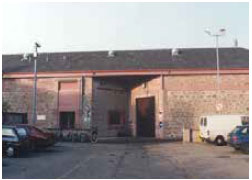
IPM Findings
Health and Wellbeing: IPMs found that the age and fabric of the building limited equality of access to facilities and services for people with disabilities, for example prisoners requiring a wheelchair cannot easily access the gym or the recreation room. Staff do what they can to support such prisoners despite these limitations, providing support on an individualised basis. SPS staff reported to IPMs that the high proportion of prisoners with mental health issues presented a challenge, and that more mental health staffing resource is required. IPMs understand that staffing for mental health services is under-resourced and that NHS Grampian is currently recruiting for these posts.
Complaints Procedure: IPMs are of the view that the complaints procedure is accessible and the process is clear. This was confirmed by prisoners who had recently used the process.
Purposeful Activity: Prisoners have benefited from being involved in decisions about allocation to work activity. While IPMs felt that a wider range of work opportunities could be provided, it was recognised that the size and age of the prison made this difficult.
Transition from Custody to Life in the Community: IPMs learned that only long-term prisoners and some prisoners serving sentences for certain offences get a Community Integration Plan (CIP), which includes arrangements for accommodation on release. Those who do not get a CIP are managed through the prisons Multi-disciplinary Liberation Group’ which examines all upcoming liberations. These prisoners are subject to, as a minimum, signposting to services and additional support organisations upon release. IPMs view this positively, and note that staff are working towards a longer-term vision where all prisoners will leave with a CIP in place.
Changes and Improvements
Food: A Prisoner Food Forum was set up following focus group work conducted by IPMs with prisoners. Prisoners now have the opportunity to contribute their suggestions about food.
Transitions to Life in the Community: IPMs were pleased to note that Job Centre Plus staff were present at the prison regularly to assist prisoners in applying for benefits before release. However IPMs still have concerns about the support available for prisoners to access Universal Credit on release, particularly in terms of the requirement for internet access, bank accounts and other factors.
HMP Open Estate

IPM Findings
Purposeful Activity: Prisoners have stated satisfaction with the work they do around the grounds. Food produced in the grounds can benefit local food-banks; giving prisoners involved a sense of worth and motivation. IPMs also found the Dementia Dogs project to be most impressive. This project sees dogs being trained by prisoners, to assist families where a family member suffers from dementia. This provides benefit to both the prisoners (in terms of motivation, self-esteem, etc.) and the families in to which the dogs are placed following ‘graduation’.
Health and Wellbeing: IPMs have spoken with the Healthcare Team about waiting times. The Healthcare team stated that they were coping well with demand for services, but there could be issues with prisoners failing to attend appointments. Rearranging them meant that prisoners had to wait longer than originally planned.
Effective, Courteous and Humane Exercise of Authority: Some prisoners complained to IPMs that it took longer than expected to hear about important decisions regarding their progression, for example at Risk Management Team (RMT) meetings. Staff told IPMs they aim to ensure prisoners are informed of RMT decisions within 24 hours. Furthermore, a First Line Manager is made available the day after an RMT meeting to provide feedback to those seeking further explanation on RMT decisions. Staff have agreed to ensure prisoners understand this process.
Changes and Improvements
Health and Wellbeing: IPMs were pleased to note that staffing at the Health Centre had stabilised and that there had been improvements to the facilities, improving the space for confidential consultations for prisoners.
Admissions: The prison has developed an enhanced admissions and addictions support pathway, in conjunction with NHS partners and other appropriate external agencies. This aims to provide better support to those arriving at the prison, and reduce the number of substance misuse related downgrades during the first month after admission, during which prisoners may be particularly vulnerable to relapse. IPMs were informed that initial reduction targets had been exceeded.
HMP Perth
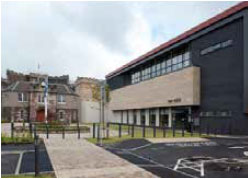
IPM Findings
Purposeful Activity: Protection prisoners reported that they were not offered as much opportunity as other groups of prisoners, for activities such as work and exercise. Staff have been looking at how the various regimes can operate better, and changes are being implemented. Protection prisoners have been keen to stress to IPMs that despite the limited regime they are well treated by staff.
Health and Wellbeing: IPMs found that HMP Perth takes a proactive approach to working with prisoners with mental health issues and were pleased to hear about a new project being run at the prison, “Andy’s Man Club”, which works with prisoners who have suicidal thoughts and provides a safe forum to talk through their problems with others.
SPS Complaints System: IPMs found that the complaints system appeared to operate in an effective and fair way, with prisoners generally understanding how to use the process.
Changes and Improvements
Healthcare: IPMs observed NHS staff handing out medication to prisoners, and noted that it was done in an orderly and confidential manner. Healthcare staff reported that the new system they are employing has allowed them to do their dispensing rounds more efficiently. The Health Centre appears to run in a calm and orderly way.
Effective, Courteous and Humane Exercise of Authority: IPMs previously reported concerns around cuffing practice during G4S‑provided prisoner transports (for example to hospital). A new policy had recently been implemented by G4S which it is hoped will equate to a more reasonable consideration of what cuffing practice is appropriate for individual cases. Should prisoners wish to make a complaint about G4S they can do so directly to G4S using the appropriate G4S complaint form.
Region 2
HMP Addiewell
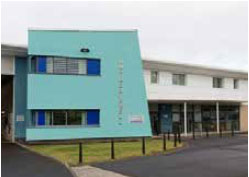
IPM Findings
Requests from prisoners: More requests to see a Monitor were received from prisoners in HMP Addiewell than in any other prison in Region 2. This may partly be attributed to the fact that there is an ‘Ambassador’ who informs prisoners about Independent Prison Monitoring as part of the induction process.
Displaced Population: IPMs were concerned that protection prisoners held in mainstream wings due to a lack of places on the protection wings were not able to access a full regime. This resulted in prisoners being locked in their cells for long periods of time. HMP Addiewell had made some improvements, for instance by increasing access to wing gym facilities for displaced prisoners but the wider issue persists. The outcome of population management work, currently being undertaken by SPS, will be fundamental to resolving this issue.
Healthcare: The number of requests received by IPMs relating to healthcare decreased, but healthcare continues to be an issue, with the majority of matters raised by prisoners relating to medication. On balance while IPMs felt prisoners were treated fairly, it was felt that there was a wider issue around prescribing and consistency of practice across the country.
Home Detention Curfews (HDC): Prisoners raised concerns with IPMs relating to HDCs, particularly in relation to timescales and communication. IPMs found that there was potential to improve some of the written communication, and that this was being progressed.
Changes and Improvements
Voluntary Drug Testing: HMP Addiewell has always provided drug testing in relation to progression or in response to suspicions of substance misuse. The prison does not deliver voluntary testing but is currently looking at making this available.
Understanding of IPM Role: This year the role of Independent Prison Monitor has really been embedded and understood within the establishment. Joint working between IPMs and the establishment has definitely improved.
Case Management: In HMP Addiewell all prisoners, including untried prisoners, are now allocated a case manager. IPMs consider this to be good practice.
HMP & YOI Cornton Vale
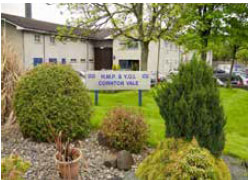
IPM Findings
Replacing HMP & YOI Cornton Vale: This year has been one of quite significant change at the prison. Following the move of a significant proportion of the population to HMP YOI Polmont in 2016, parts of the establishment have now been demolished to enable the new build to commence.
Purposeful Activity: IPMs were concerned that the redevelopment of HMP & YOI Cornton Vale might result in reduced access to purposeful activity for women. However, this has not been the case and IPMs found that this had been managed well by the establishment.
Number of Requests: IPMs continue to receive low numbers of requests from women in HMP YOI Cornton Vale, but given the lower numbers of women held there, proportionally the volume of requests are not a cause for concern.
Health and Wellbeing: One area where women have raised issues with IPMs is around healthcare. Women have reported issues relating to medication and access to services. On balance IPMs felt that the healthcare provided was reasonable, and were particularly impressed by the mental health support offered to women in Ross House. However the resolution of wider issues around consistency of prescribing, that affects all prisons, would be of benefit.
Pregnant Women: The previous HMIPS inspection report raised concerns around the practice of pregnant women being placed in Ross House. At present, all pregnant women are held in HMP & YOI Cornton Vale. IPMs have questioned whether this is reasonable and appropriate, and found that work is underway to address this issue.
Changes and Improvements
Women’s Strategy: The work being undertaken as part of the Women’s Strategy is welcomed. IPMs feel a new establishment is long overdue and that the development of Community Hubs is positive. However there remains a concern that more work is required to reduce the number of women in custody, to ensure that the total number of places available in the new estate for women match’s places required. In addition, it is anticipated that the rebuild at HMP YOI Cornton Vale will create some challenges in terms of on-going provision such as the operation of the Open Estate for women.
Ross House: IPMs noted that some of the women in Ross House have complex needs, often rooted in mental health. The joint work of SPS and NHS Staff was positively received by IPMs, as has the provision of some additional activity in Ross House along with daily presence of peer supporters.
HMP Edinburgh

IPM Findings
Population Management: IPMs previously raised concerns about the number of “displaced” prisoners locked in their cells for long periods of time, who were unable to access a full regime. Work has taken place this year to try and address this matter which is welcomed by IPMs. Although a local solution has been found, the completion of work at a national level to address the issue of population management would be welcomed.
Personal Officers: IPMs found that the Personal Officer scheme in HMP Edinburgh seemed inconsistent in its application. While there was evidence to show that some Personal Officers do a really good job, others appear unsure about what the role requires. IPMs have also come across several situations where prisoners seemed unsure about who their Personal Officer was. It is hoped that the Prison Officer Professionalisation Programme will go some way to address this.
Healthcare: There has been a decrease in the amount of requests that relate to healthcare. IPMs now meet fortnightly with the healthcare team to discuss any concerns or requests, and have found this results in queries being resolved more quickly.
Social Care: This year, IPMs have seen a greater demand for social care services. While HMP Edinburgh has managed the situation well, in the view of IPMs demand is likely to increase further.
Changes and Improvements
Population Management: Moving parts of the prisoner population to different locations has enabled HMP Edinburgh to greatly improve the situation for prisoners on restricted regimes. The numbers of prisoners subject to a restricted regime has greatly reduced and other issues, such as access to purposeful activity, have improved as some activities are now delivered in the halls.
Purposeful Activity: IPMs have been to the gym to look at the new timetable and what is being offered to prisoners. IPMs were pleased to see that there are classes and activities better targeted to the different populations in HMP Edinburgh, and will continue to monitor how the new timetable progresses.
Throughcare and Aftercare Support: IPMs were impressed by the work of this team, in particular the work to ensure people have bank accounts and appropriate identification to enable them to claim benefits on release.
HMP & YOI Polmont

IPM Findings
Purposeful Activity: IPMs agree that there is an array of activities that young men can get involved in, and that the purposeful activity options available for women have increased. It is also acknowledged that the work to increase options for women required physical changes to the environment. Despite this, IPMs still have concerns about the amount of women and young men in Polmont who are involved in purposeful activity.
Time Spent in Cells: Partly as a result of low levels of involvement in purposeful activity, young men in particular seem to spend a disproportionate amount of a day locked in their cells. IPMs would like to see this change.
Access to time in the Open Air: We have seen some improvement in ensuring access to time outside, however there are some populations that still do not appear to be able to access time outside every day.
Changes and Improvements
Dunedin: Dunedin is the Separation and Reintegration Unit in HMP YOI Polmont. IPMs have regularly commented on the positive work they observe in this Unit, often with some of the most challenging and vulnerable young men in the establishment.
Food: This topic is raised on a regular basis with IPMs, but on further and regular investigation IPMs concluded that the food provided is of a reasonable standard.
Visits: IPMs received a number of requests relating to the length of visits, and therefore raised this issue with HMP YOI Polmont. In response, senior staff asked for a snapshot of visit start and finish times to be provided over an agreed period of time. This showed that the longest visit session had been 53 minutes and the shortest 43. IPMs felt that this was a positive response to the concern and that it showed visits were being managed appropriately.
HMP Shotts

IPM Findings
Progression: When IPMs look into issues relating to progression, in the majority of cases it is concluded that prisoners have been treated reasonably. However IPMs share prisoners’ frustration with issues such as waiting times for places in the National Top End or for places on specific courses. This issue is more prevalent in HMP Shotts due to the population, but it is also a national matter which HMIPS continues to review.
Health and Wellbeing: IPMs have spent significant time this year looking at healthcare provision in HMP Shotts, concluding that some services are well run such as mental health support and addiction services. However, IPMs have noted some gaps regarding the provision of services for prisoners with long-term conditions, and the lack of a cohesive recording system for all heath care professionals working in the establishment.
Preparation for Release: As HMP Shotts is a long-term prison; most prisoners will be liberated from other establishments. However it is estimated that around 60 people are liberated directly from Shotts each year. Some work is done to prepare prisoners for release and IPMs would like to see this further enhanced.
Changes and Improvements
Visitor Centre: The provision of improved conditions for visitors is welcomed. The new visitor centre provides a better play area for children and for different services to be accessible for families and friends. IPMs have heard positive feedback from visitors.
Alzheimer’s Scotland: The Dementia Awareness work HMP Shotts has carried out with Alzheimer’s Scotland has impressed IPMs. It led to them winning the award for “Most Innovative Partnership” at Scotland’s Dementia Awards 2017.
Reporting as Unfit for Work: Changes have been made to the way prisoners report as being unfit for work. The change means that prisoners no longer need to see a healthcare professional to assess their fitness to work. This change has meant less healthcare time being spent on a daily triage of less serious ailments and increased personal responsibility for prisoners.
Region 3
HMP Barlinnie

IPM Findings
Reception: IPMs have continued to note the cramped and challenging conditions in the reception area. Prisoners are often held in the small reception cubicles during admission. Prison management have acknowledged this is unsuitable but very difficult to improve due to the fabric of the building. They have committed to checking on prisoners held in these areas at regular intervals and IPMs will continue to make regular visits to reception to observe processes and speak with prisoners.
Purposeful Activity: IPMs note that while there are good opportunities for purposeful activity at HMP Barlinnie, supply outstrips demand and there is a significant lack of provision for remand prisoners. IPMs have commented on some very good work in the Communication Hub where a group of prisoners have helped create a radio station, Barbed Wireless Radio, which is now transmitted into cells.
Mental Health: IPMs have raised concerns about the extent of mental health issues faced by prisoners in HMP Barlinnie and a large number of requests have been received relating to this. Staff have discussed some of the challenges associated with managing and caring for those with mental health problems. IPMs acknowledged that there was good provision of service for the smaller number of prisoners with severe and enduring mental health conditions, but found that the larger cohort of prisoners with less severe problems do not have access to the same level of provision. IPMs have welcomed the recent mental health review which should lead to better awareness and increased staff training.
Home Detention Curfew (HDC): A lengthy backlog in processing cases of prisoners eligible for HDC led to a high volume of requests to see IPMs. IPMs found that the delay related to a number of factors, including staffing, and this has now been rectified.
Novel Psychoactive Substances (NPS): IPMs noted concerns within the establishment around the prevalence of use of NPS and the challenges associated with this, including erratic and violent behaviour of prisoners under the influence of substances.
Changes and Improvements
Visits room: IPMs found noticeable improvements in the furnishing of the visits room and reported a well-run area where staff treat prisoners and visitors well. Various other initiatives have been identified and implemented to improve the interactions between prisoner and families.
Throughcare: IPMs have found that the provision of throughcare services has continued to improve in the prison over the course of the year, and have had an update on the thematic review underway in HMP Barlinnie. This has included a mapping exercise to identify and engage with all relevant community partners in order to improve the opportunities for prisoners.
HMP Dumfries

IPM Findings
Relationships: IPMs found a very positive staff attitude in HMP Dumfries, with high levels of prisoner engagement. This contributed to the feeling of a well-run and safe environment based on mutual respect.
Throughcare: IPMs reported a range of good initiatives in place to embed HMP Dumfries in the wider community, with regular family and community days held in the establishment. IPMs also saw evidence of significant partnership working with local agencies, particularly with regard to throughcare provision. However, IPMs note that the Links Centre is often under-used and so not as effective as it could be.
Programme Availability: IPMs heard from prisoners who were frustrated about programme availability. This has been an on-going issue over the last twelve months, with prisoners feeling that there is restricted access for programmes to facilitate rehabilitation and progression. In raising this matter with HMP Dumfries, IPMs received detailed information about the National Programmes Policy, and were encouraged that an analysis of programme need had been conducted. In addition, delivery of the new Discovery programme began at HMP Dumfries in April 2018, adding to the range of programmes available. It is anticipated that there will be increased provision of behaviour change programmes as of summer 2018.
Changes and Improvements
Decency: IPMs noted a number of improvements including refurbishment of the kitchen and residential areas, the replacement and upgrade of all prisoner’s clothing and the refurbishment of the visits room which created a welcoming atmosphere for visitors, friends and families. IPMs have also welcomed the funds set aside to refurbish the residential areas.
Novel Psychoactive Substances (NPS): IPMs heard concerns about the significant increase in the prevalence and use of NPS within HMP Dumfries, posing problems in terms of personal safety and delivery of the prison regime. In the immediate aftermath of one incident relating to NPS, HMP Dumfries instigated a multi-agency workshop to formulate an action plan in consultation with key partners, in order to minimise risk and address this problem.
HMP Greenock

IPM Findings
Relationships: IPMs consistently noted positive interactions between prisoners and staff. It is clear that respectful and constructive relationships underpin much of the work at HMP Greenock. The level of requests to see IPMs is relatively low compared to other establishments, and IPMs feel this reflects prisoners’ issues being resolved effectively by the prison.
Decency: IPMs have frequently commented on challenges associated with the age and fabric of HMP Greenock, particularly in terms of the poor condition of cells in Ailsa, which are now no longer in use, and in the disabled cell in A Hall. IPMs welcomed the resources spent on general maintenance and painting.
Throughcare: Throughcare support is now fully developed and well utilised at HMP Greenock. The service is offered to all who meet the criteria but is not always taken up. IPMs found that literature and information on throughcare services was easily accessible and visible throughout the prison and there was a high level of awareness, among staff, of the interagency community work involved in the throughcare process.
Visits: IPMs heard some anecdotal evidence from prisoners that visitors were occasionally turned away from visits, creating frustration. Prisoners requested more transparency in this decision making process. HMP Greenock has engaged in dialogue with IPMs about the various reasons why such decisions are required.
Progression: The effective use of the National Top End facility, Chriswell House, has been an issue for IPMs. Prisoners have relayed some frustrations at delays between Chriswell and the Open Estate, and in exploring this, decision making often appeared be risk averse. IPMs have been able to determine a number of variables which influence the speed of progression including waiting times for first grant release, prisoners’ own conduct and risk assessments. IPMs did find that there was a good selection of community placements available to assist prisoners’ development in this area.
Changes and Improvements
Purposeful activity: IPMs have welcomed the development of the bike shed work party, and the possibility of accreditation for those involved in the near future. The redevelopment of the library has been highlighted as positive progress, although there appears to be some limitations on this resource in respect of staffing. Work parties continue to operate well for the most part, although it is noted again that the same problems with staffing apply, where one supervisor is absent and cover is not available, IPMs found that work parties can be cancelled for the day. IPMs have also welcomed the development of improved life skills provision within the establishment.
HMP Kilmarnock

IPM Findings
Healthcare: Prisoners reported a range of concerns about healthcare at HMP Kilmarnock, including prescription, withdrawal of pain medication and access to mental healthcare provision. IPMs continue to liaise with prisoners and the healthcare team on these issues. IPMs welcomed the introduction of Multi-Disciplinary Mental Health Team Meetings which have enabled good dialogue across various disciplines in the establishment.
Use of Force and Prisoner Allocation: HMP Kilmarnock provided IPMs with detailed information about when and how force and restraint is used in the prison, with IPMs finding this robust and transparent. IPMs also observed cell placement discussions and allocation of prisoners, and found that clear and careful consideration was given to all decisions.
Separation and Reintegration Unit (SRU): While IPMs have noted an increase in the use of the SRU and the length of time some prisoners are held there, they have commented positively on the level of care taken by staff in the Unit to ensure good treatment of prisoners. IPMs have also noted the increasingly challenging nature of some of the prisoners in the SRU areas and acknowledge the difficulties associated in managing and caring for them.
Novel Psychoactive Substances (NPS): IPMs note the continued prevalence of NPS within the establishment and the personal safety challenges this continues to present to prisoners and staff.
Changes and Improvements
Visits: IPMs have reported on a number of positive developments to visits sessions including additional services to support family contact and bonding. The new visitor centre has been created and is an excellent addition to the establishment.
Throughcare: While provision of throughcare services is currently limited in HMP Kilmarnock, steps have been taken to focus more time and resources in this area, with senior management now overseeing the streamlining of throughcare processes for prisoners nearing liberation.
HMP Low Moss
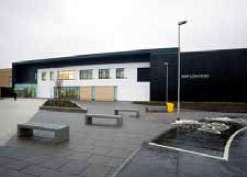
IPM Findings
Education: Concerns were raised that the level of provision diminished during the transition to a new contract provider, with prisoners reporting that education sessions have been reduced. IPMs found that levels of attendance have been lower than in previous years, with some classes cancelled or no longer taking place.
Healthcare: Prisoners continue to raise issues about healthcare in HMP Low Moss, relating to prescribing practices, dispensing of medication and access to pain medication. IPMs noted that there was a relatively high turnaround in pharmacy staff which led to some complaints from prisoners about access to medication. IPMs will continue to liaise with the Healthcare team as they implement the action plan following the recent HMIPS inspection.
Novel Psychoactive Substances (NPS): IPMs have continued to hear concerns about the prevalence of NPS, particularly in terms of safety and health, and wellbeing.
Progression: Some prisoners continue to report problems in assessment or access to programmes to support rehabilitation and progression, leading to concerns that they may miss important marker points and dates for moving forward in their prison sentence. These have been dealt with on a case by case basis but IPMs have noted some emerging trends, including the speed of assessment and programme delivery. A further factor noted was understaffing in Psychology.
Purposeful Activity: IPMs found that there were very good opportunities for purposeful activity at HMP Low Moss, with prisoners reporting positively of their experience in work parties. IPMs have commented on the busy nature of all the work areas in the prison, which are well supervised with good delegation of tasks and opportunities for accreditation and certification in certain departments.
Visits: IPMs have reported very positively on arrangements for visits at HMP Low Moss. In particular, family visits sessions in collaboration with Early Years Scotland were observed to be very effective.
Changes and Improvements
Mental Health: The level of mental health issues reported by prisoners at HMP Low Moss has also concerned IPMs, although healthcare staff note no quantifiable increase in this area. IPMs nevertheless welcomed the development of Talking Heads, a support programme for those with mental health difficulties which was nominated for a Butler Trust Award.
Separation and Reintegration Unit (SRU): There has been an increase in the numbers of prisoners in SRU, the complexity of their risks and needs, and also the length of time they are held there. IPMs have dealt with a number of requests from prisoners in the SRU relating to treatment, punishment and loss of privileges, and will continue to monitor in this area on a regular basis.
